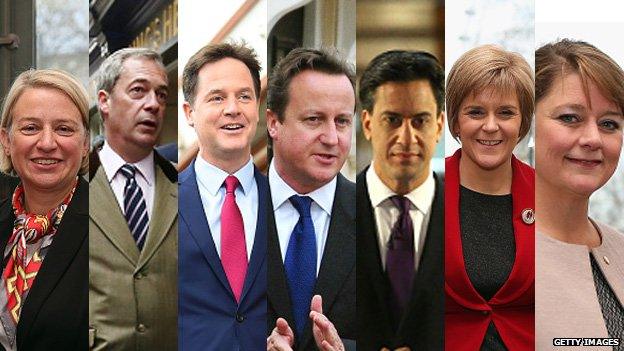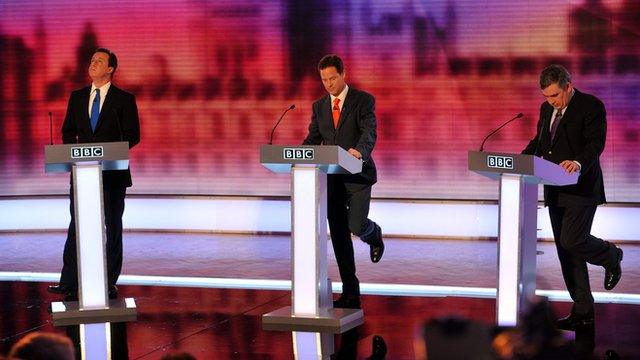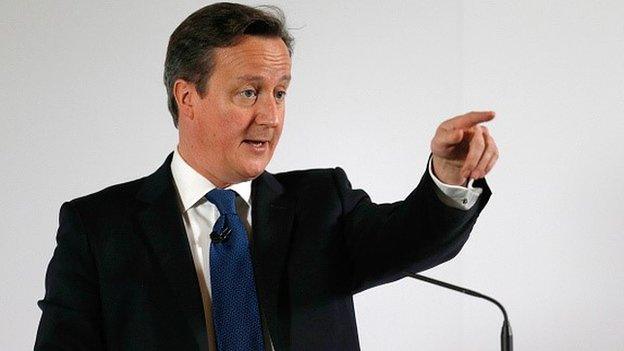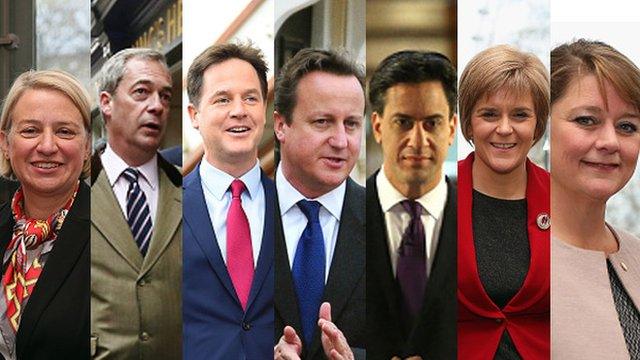TV election debates: BBC rejects DUP demand to be included
- Published

The broadcasters have proposed two live election debates featuring seven UK political parties
BBC director general Tony Hall has rejected the Democratic Unionist Party's request to be included in the TV election debates.
Lord Hall is understood to have told the party he saw no grounds to review the decision not to invite them.
The broadcasters plans feature two debates with seven parties, including UKIP, SNP, Plaid Cymru and the Greens.
DUP leader and Northern Ireland First Minister Peter Robinson said the BBC's response was "irrational".
In a tweet, external, Mr Robinson said there was "no valid reason" to exclude the party from the live televised election debates.
BBC assistant political editor Norman Smith says the DUP is considering taking legal action.
Revised proposals
The DUP had written to the BBC and ITV asking for an explanation as to why the DUP had not been invited to take part in the live televised election debates.
In his written reply to the DUP, Lord Hall is understood to have said the decision not to include them complied with the BBC's obligations of impartiality.
He is expected to write a further letter setting out the BBC's detailed reasons for excluding the DUP and other Northern Ireland parties.
Both David Cameron and the Labour Party have indicated they believe the broadcasters should consider including parties from Northern Ireland.
Mr Cameron has also suggested the debates should not take place in the election campaign proper.
The BBC and ITV are currently planning to hold two debates involving the Conservatives, Labour, Liberal Democrats, UKIP, Plaid Cymru, the SNP and the Greens.
A third debate - hosted by Sky and Channel 4 - would feature a head-to-head between Mr Cameron and Labour leader Ed Miliband.
The initial proposals put forward by the broadcasters had included only the Conservatives, Labour, Lib Dems and UKIP.
However, David Cameron refused to take part unless the Green Party was included - which prompted a political row, and forced a rethink of the plans.
Three other Northern Ireland parties - Sinn Fein, the SDLP and Alliance - have also all said they should be involved in the debates.
The proposed schedule is for debates to be held on 2 April, 16 April and 30 April in the run-up to the 7 May election.
- Published23 January 2015

- Published27 January 2015

- Published23 January 2015
